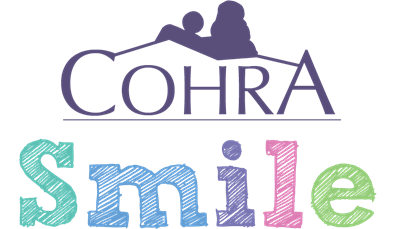About

The Center for Oral Health Research in Appalachia (COHRA) has been working in West Virginia communities for the past 20+ years. COHRA is an initiative that operates throughout the state, and has been funded by the National Institute of Dental and Craniofacial Research, one of the National Institutes of Health. COHRA is a collaborative project that involves West Virginia University, the University of Pittsburgh, and the University of Michigan. The aim of this research is to identify factors that contribute to the burden of dental problems, and oral health disparities, in our state, and thus to select the most promising areas for intervention.
The first phase of the COHRA project (COHRA1) began in 2002 and continued through 2009; it focused on families in Webster and Nicholas counties, West Virginia, and selected other rural Pennsylvania counties. The second phase (COHRA2) began in 2010 and the third phase (COHRA Smile) began in 2018. In COHRA2, we recruited 555 women from across West Virginia during pregnancy, and followed them and their child up to age ten. In COHRA Smile we focused exclusively on African American women with a recruitment total of 94. Both COHRA 2 and COHRA Smile in person sample collection was concluded in December 2021.
In all the COHRA projects, we are assessing a broad array of factors that lead to health and disease, particularly in the realm of oral health. Our areas of investigation include genetics, microbiological indices, psychosocial factors (including maternal/postpartum depression, among others), water quality, degree of rurality, and many more. We are continuing to follow both of our existing cohort groups of COHRA2 and COHRA Smile families through an on-line survey-based data collection.
With and through COHRA, we will continue to work in West Virginia communities, and with partner agencies, as opportunities arise. The principal investigator for the grant at West Virginia University is Dr. Dan McNeil, who has emeritus appointments in the School of Dentistry, and the Department of Psychology. Dr. McNeil and his colleagues have NIH/NIDCR funding for COHRA through 2023, allowing ongoing analysis and presentation and publication of findings. Contact with COHRA2 and COHRA Smile families continues via on-line surveys.
A bibliography of 125+ journal article publications and chapters and almost 200 conference presentations produced by the COHRA team about Appalachian health can be found on that website. For more information about COHRA, please contact the WVU Project Coordinator, Tayla Tallman at cohra2@hsc.wvu.edu. 